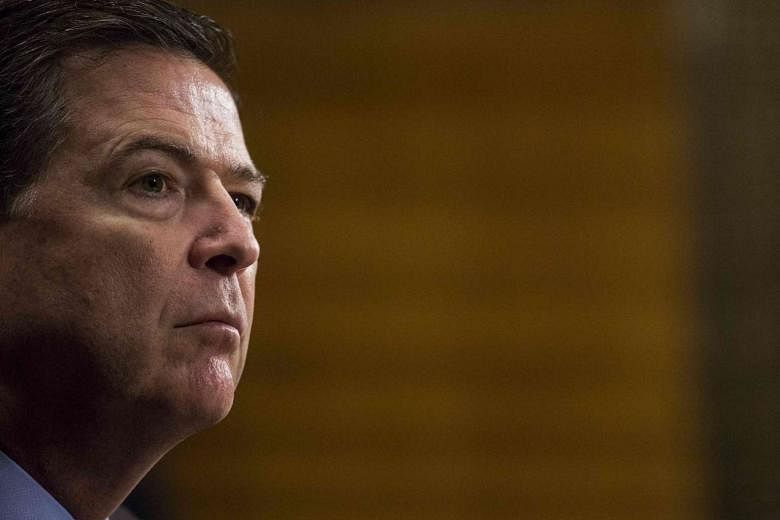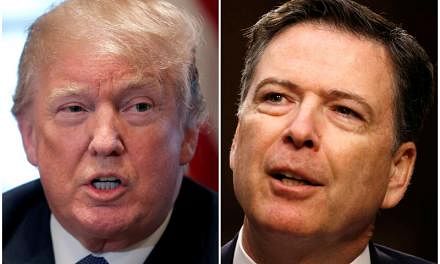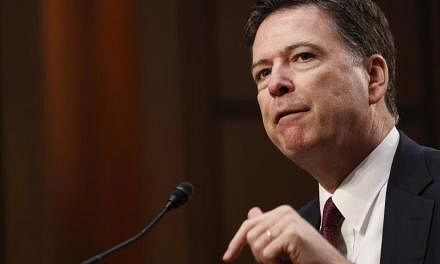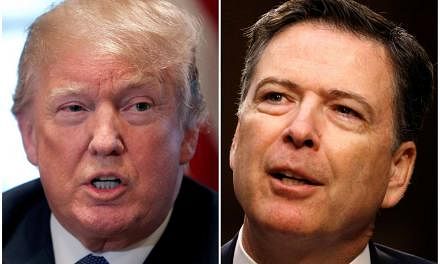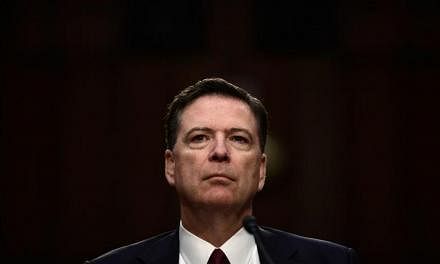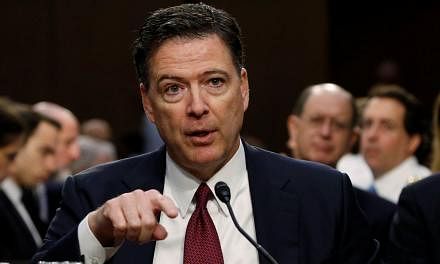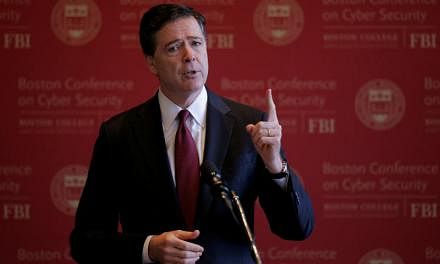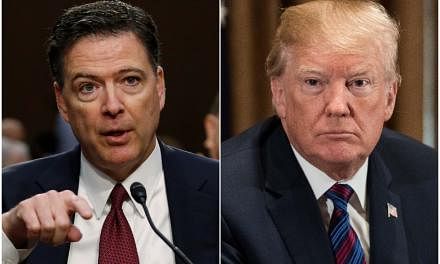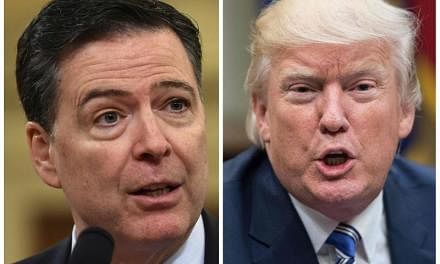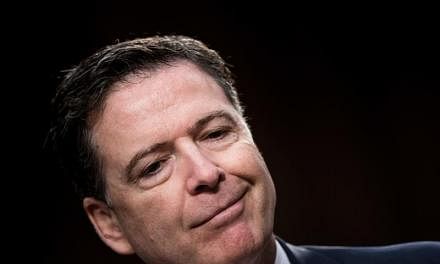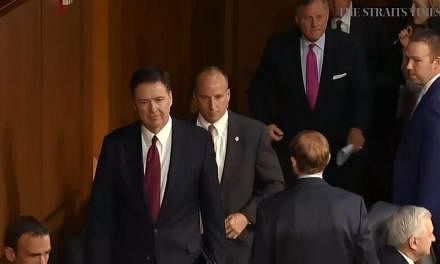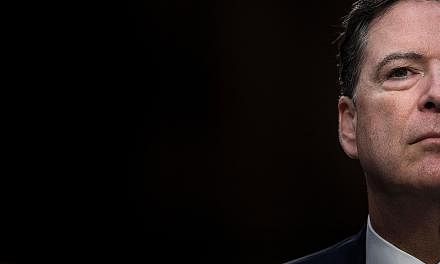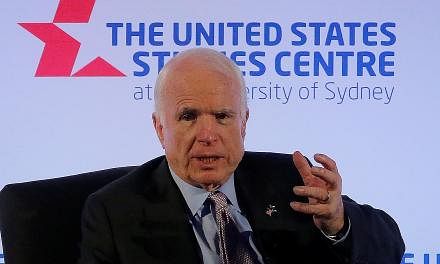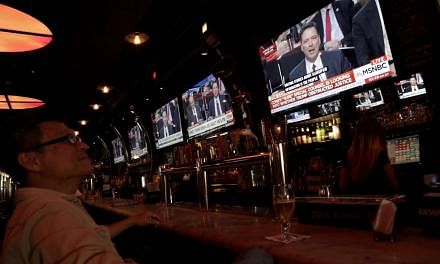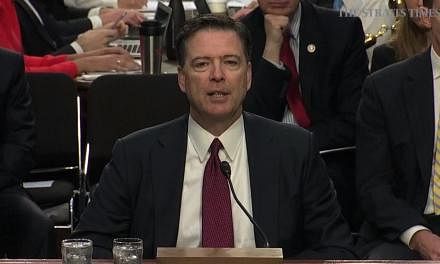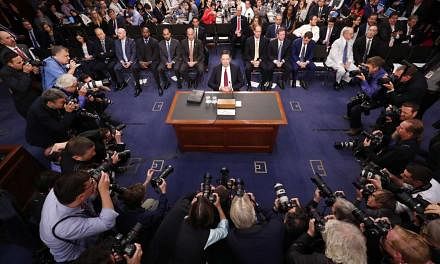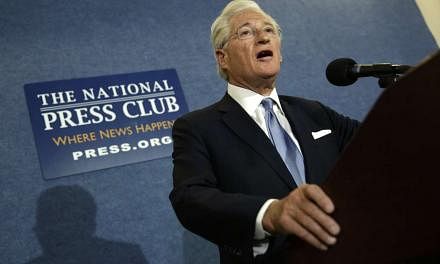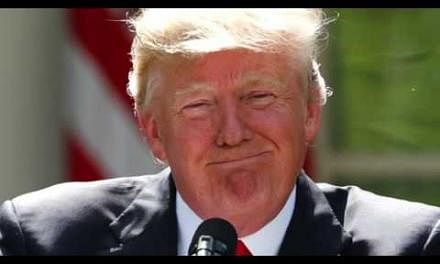WASHINGTON - The opening statement of former FBI director James Comey much-awaited testimony before the Senate Intelligence Committee on Thursday (June 8) in Washington reveals a President deeply concerned and disturbed by investigations into his team's Russian associations.
In the statement, released on Wednesday with Mr Comey's approval, Mr Comey confirmed that he had assured the President that he was not under investigation.
He also confirmed that the President had asked for his loyalty, requested that he drop the probe into his former National Security Adviser Michael Flynn's contacts with Russians and help "lift the cloud" of allegations about Russia links hanging over the President.
The statement in itself did not reveal anything that may decisively affect the President; it confirms what multiple media reports have said about Mr Comey's uneasy relationship with Mr Trump.
However it immediately invited partisan interpretations. President Donald Trump's critics seized on it as pointing to obstruction of justice, while his own lawyer claimed it vindicated the President.
Mr Preet Bharara, an outspoken former New York prosecutor who was fired by Mr Trump, tweeted: "Obstruction aside, it's NEVER ok for a (President of the United States) privately to ask an FBI Director to drop a criminal investigation. Extraordinary, wrong & dumb."
But Republican National Committee chairwoman Ronna McDaniel said in a statement: "Director Comey's statement reconfirmed what the president has been saying all along - he was never under investigation."
But he added that "it is unlikely that any revelation in and of itself (in the statement) is going to determine an outcome".
"This investigation is going to be a long process and these are building blocks, and may have legal significance if they accumulate," said Dr Altschuler.
In his statement, Mr Comey said that at a private dinner initiated by the President on Jan 27, "my instincts told me that the one-on-one setting, and the pretense that this was our first discussion about my position, meant the dinner was, at least in part, an effort to have me ask for my job and create some sort of patronage relationship."
"That concerned me greatly, given the FBI's traditionally independent status in the executive branch."
He told the President he was not on anybody's side politically.
"A few moments later, the President said, 'I need loyalty, I expect loyalty'. I didn't move, speak, or change my facial expression in any way during the awkward silence that followed. We simply looked at each other in silence."
The dinner was one of nine conversations the former chief of the Federal Bureau of Investigation had with the President in person and on the phone, the statement said.
On March 30, the President called Mr Comey and "described the Russia investigation as 'a cloud' that was impairing his ability to act on behalf of the country".
"He asked what we could do to 'lift the cloud'," Mr Comey's statement said..
Mr Comey was fired on May 9, with Mr Trump later telling NBC that the FBI director was a "showboat".
His statement came as the Senate Intelligence Committee conducted an often testy hearing on Wednesday, in which director of National Intelligence Daniel Coats and National Security Agency Director Admiral Michael Rogers stonewalled direct questions as to the content of their conversations with the President, saying they could only reveal details in private.
That annoyed even the Republican chair of the committee, Senator Richard Burr.
"At no time should you be in a position where you come to Congress without an answer," he told the intelligence chiefs.
